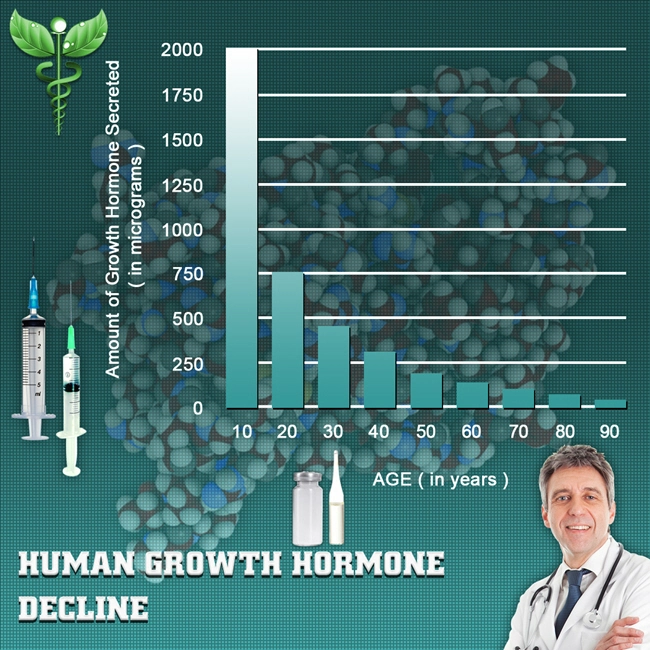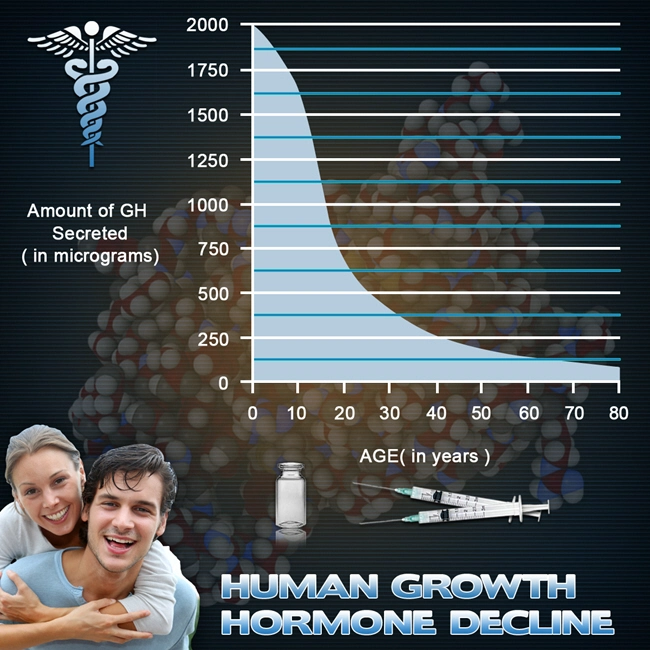
Video Link: https://vimeo.com/291651215
Video Download: Click Here To Download Video
Video Stream: Click Here To Stream Video
Video Link: https://vimeo.com/291651382
Video Download: Click Here To Download Video
Video Stream: Click Here To Stream Video
Human Growth Hormone (HGH) Replacement Therapy produces unimaginable changes in the human body: fat melts, pounds disappear, aches and pains ease, moods brighten, and many more beneficial outcomes. And to make your growth hormone therapy even more effective, consider Intermittent Fasting.
Recently, intermittent fasting (IF) has skyrocketed in popularity to become the latest trend in the world of health, fitness, and weight loss. There are many reasons why this has happened.
 First, the spiraling explosion in obesity rates in America has created a sense of urgency to do something about it. According to recent reports, 70% of the U.S. population is overweight, and the rate of obesity among Americans has steadily climbed to an astonishing nearly 40%!
First, the spiraling explosion in obesity rates in America has created a sense of urgency to do something about it. According to recent reports, 70% of the U.S. population is overweight, and the rate of obesity among Americans has steadily climbed to an astonishing nearly 40%!
Indeed, Americans are rapidly becoming a nation of giant, massive people. This fact illustrates the challenges many people encounter when following one of the broad range of diets: Atkins, Pritkin, Weight-watchers, Zone, South Beach, Ketogenic, Paleo, Mediterranean, and countless other approaches.
Undoubtedly all of these diets have helped some people lose pounds and fat. But none of them have proven to be sustainable long-term for the vast majority of folks who have obtained short-term beneficial results from following any of these approaches.
It seems to be a vicious cycle. Gain weight quickly and effortlessly, go on a diet and lose weight slowly and feel deprived, then gain the weight back all over again.
Therefore the logical conclusion is that…
Diets are Incredibly Strenuous and Burdensome
Consider the word “diet.” One of the dictionary definitions of diet is: “restrict oneself to small amounts or special kinds of food to lose weight.”
That doesn’t sound like much fun, does it? And for some people, attempting to stay within the narrow, rigid limits of the latest diet is a permanent part of their life.
More and more people are becoming fed up with being on this dietary “merry-go-round” to nowhere and have turned to a new eating pattern: intermittent fasting.
Before we discuss what intermittent fasting is, the many additional benefits IF delivers in addition to weight loss, and review the recent research on the topic, an explanation of why IF works and what makes IF different from other diets is in order. 
To keep things simple, remember this: Glucose (sugar) is our body’s go-to choice for energy. Glucose comes from the food we eat. Naturally, when we fast, there is no glucose for the body to draw upon for fuel.
Therefore, the body begins to burn fat by switching fat cells into molecules named ketones, which serve as the body’s source of fuel. This process means that the body uses stored fat as energy...a good thing.
But There Could be too Much of a Good Thing
That’s correct. When calories are slashed for extended periods, the body has no choice but to eat all tissues -- not merely fat but muscle and organ tissue as well. This is not the outcome we desire, for getting and staying healthy, losing weight, and maintaining a vigorous, robust appearance.
This explains why long-term fasts are potentially dangerous. Fortunately, intermittent fasting can deliver benefits without near-starvation deprivation.
Intermittent Fasting for Weight-Loss
A recent University of Illinois at Chicago study concluded that restricting calories for 16 hours out of the 24-hour day (The “16-8” method) helped the subjects lose significant amounts of weight.
The study consisted of 23 subjects, average age of 45, who were considered obese, and with a body mass index (BMI) of 35 or higher.
Between the hours of 10 a.m and 6 p.m, the participants could eat regularly. For the remaining 16 hours, they were restricted to either water or a calorie-free beverage. The study continued for 12 weeks.
At the end of the study, the researchers concluded that the subjects lost weight by an average of 3 per cent of their total weight and consumed approximately 350 calories less than usual.
"The take-home message from this study is that there are options for weight loss that do not include calorie counting or eliminating certain foods," said Krista Varady, associate professor of kinesiology and nutrition in the UIC College of Applied Health Sciences and corresponding author on the study.
While this is the first study to look at the 16:8 diet, named for its 16 hours of fasting and its 8 hours of "feasting," Varady says that the results concur with prior studies on other types of intermittent fasting diets.
 "The results we saw in this study are similar to the results we've seen in other studies on alternate day fasting, another type of diet," Varady said, "but one of the benefits of the 16:8 diet may be that it is easier for people to maintain. We observed that fewer participants dropped out of this study when compared to studies on other fasting diets."
"The results we saw in this study are similar to the results we've seen in other studies on alternate day fasting, another type of diet," Varady said, "but one of the benefits of the 16:8 diet may be that it is easier for people to maintain. We observed that fewer participants dropped out of this study when compared to studies on other fasting diets."
Varady added that "These preliminary data offer promise for the use of time-restricted feeding as a weight loss technique in obese adults, but longer-term, large-scale randomized controlled trials are required.
The 16:8 diet is another tool for weight loss that we now have preliminary scientific evidence to support. When it comes to weight loss, people need to find what works for them because even small amounts of success can lead to improvements in metabolic health."
Another study conducted at the same university looked at a variation of the "16-8 plan" called the "5-2 produce". This plan consists of regular eating for five days of the week and on the other two days restricting food intake to around 500 calories.
In the study, on the low-calorie days, the subjects ate one meal that followed American Heart Association guidelines with 30 per cent of calories coming from fat, 15 per cent from protein, and 55 per cent from carbohydrates.
The idea was that this style of fasting would not cause the participants to feel like they were starving, which is a common problem with stricter, longer-term fasting and many popular diets that restrict food continually.
After the 12-week study, the subjects averaged about a one-pound loss per week, which is considered a healthy weight-loss rate.
A review published in the journal Obesity Science and Practice compared alternate-day fasting to day-in/day-out, very low-calorie diets and found that alternate-day fasting is more comfortable for some people to stick to, plus it often results in losing more fat and preserving more muscle.
Because research studies typically include medical supervision, before you try such a regimen, talk to your health-care provider to see if you're a good candidate for it and if there are any steps you need to take, unique to your situation.
A third Canadian study concluded that IF could produce beneficial results in as little as six weeks.
This encouraging news is according to a study by Kyoung-Han Kim and Yun Hye Kim in the journal Cell Research. Intermittent fasting in mice helped to boost the animals' metabolism and to incinerate fat by creating body heat. The research team was led by Hoon-Ki Sung of The Hospital for Sick Children in Ontario, Canada.
animals' metabolism and to incinerate fat by creating body heat. The research team was led by Hoon-Ki Sung of The Hospital for Sick Children in Ontario, Canada.
The research team in this study wanted to understand better the effects that interventions such as fasting provoke at the molecular level in the body.
They subjected groups of mice to sixteen weeks of intermittent fasting. The animals were fed for two days, followed by one day of fasting. Their calorie intake remained the same.
After four months, the mice in the fasting group weighed less than those in the control group who ate the same amount of food. The reduced body weight of the mice in the fasting group was not the only effect.
The fasting program helped lower fat build-up in the white fat by raising the brown-like fat (involved in burning energy and manufacturing body heat) of mice on the high-fat diet. Their glucose and insulin systems also stayed steady. In a further experiment, similar benefits were already seen after only six weeks of intermittent fasting.
"Intermittent fasting without a reduction in calorie intake, can be a preventative and therapeutic approach against obesity and metabolic disorders," says Kyoung-Han Kim.
"Strikingly, these fasting-stimulated changes in the growth of vascular cells and subsequent immune alterations occur even after a single cycle of 24-hour fasting, and are completely reversed when mice start eating again," adds Yun Hye Kim.
But There are Other Benefits that Intermittent Fasting Delivers
That’s correct. As crucial as losing weight and blow-torching fat are, there are several other benefits that IF brings. Here are a few of them:
- Lower inflammation (measured by C-reactive protein levels). Inflammation has been linked to several severe and adverse health conditions such as cancer and autoimmune diseases.
- Cognitive benefits. IF has been shown to lower the risk of Alzheimer’s disease in animal studies.
- Lower the risk of diabetes, cardiovascular disease, and cancer. There is, of course, no magic bullet that will prevent these crippling afflictions. But intermittent fasting can cause changes at the cellular level that may boost your immune system.
- Increased production of Human Growth Hormone (HGH).
Intermittent Fasting = Another Weapon in the Anti-Diabetes Arsenal
Here are some grim statistics: Nationwide, diabetes rates have nearly doubled in the past 20 years — from 5.5 per cent (1994) to 9.3 per cent in 2012.  More than 29 million American adults have diabetes, and another 86 million have prediabetes. The Center for Disease Control (CDC) projects that one in three adults could have diabetes by 2050.
More than 29 million American adults have diabetes, and another 86 million have prediabetes. The Center for Disease Control (CDC) projects that one in three adults could have diabetes by 2050.
More than one-quarter of seniors (ages 65 and older) have diabetes (25.9 percent, or 11 million seniors). Diabetes is the seventh leading cause of death in the United States, accounting for around $245 billion in medical costs and lost productivity each year.
Ugly, ugly, ugly numbers. And worse, these ominous numbers are not showing any signs of slowing down.
Faced with this gruesome reality, help from any direction is desperately needed -- and intermittent fasting holds out the promise of halting the rapid and seemingly inexorable swath of destruction caused by diabetes.
Numerous animal studies have demonstrated the benefits of intermittent fasting. There are no definitive explanations given as to why IF boosts health. But there are a few valid ideas.
First, fasting allows our cells to perform routine maintenance and remove older “senescent” cells.” These are cells that have stopped dividing and have become so-called “zombie cells” that take up space, block the functioning of healthy cells, and speed up the aging process. Fasting allows our bodies to “take-out-the-trash” by removing these senescent cells.
Second, fasting also forces cells to look for other sources of energy besides glucose (sugar), since there is no food coming in.
One of these alternative energy sources is called ketones, which are molecules produced in the liver from recycled fat. This process seems to be helpful in lowering blood sugar levels.
The Diabetes/Intermittent Fasting Studies
Researchers led by Valter Longo, director of the Longevity Institute at the USC Leonard Davis School of Gerontology began by testing whether periodic fasting could cure diabetes in mice. They used mutant mice that lack the fat hormone leptin to regulate their food intake.
could cure diabetes in mice. They used mutant mice that lack the fat hormone leptin to regulate their food intake.
These mice continuously overeat and become obese and diabetic in early adulthood. The researchers found that after just a few months of periodic fasting -- alternating seven unrestricted eating days with four restricted days -- the diabetes was cured. This is an astonishing result.
"Cycles of a fasting-mimicking diet and a normal diet essentially reprogrammed non-insulin-producing cells into insulin-producing cells," said Longo. "By activating the regeneration of pancreatic cells, we were able to rescue mice from late-stage type 1 and type 2 diabetes. We also reactivated insulin production in human pancreatic cells from type 1 diabetes patients."
But what's even more amazing is the reason behind it. The mice lost weight during the periodic fasting. But that wasn't the whole story. Intermittent fasting actually solved the diabetes problem directly at one of its sources: the pancreas.
Diabetes is a condition marked by excess blood "sugar," (i.e., excess blood glucose).
It's mainly an insulin issue. Usually, insulin causes cells in the body to absorb glucose from the blood. But diabetes causes glucose to remain in the blood since cells no longer take it in. This is because many cells with diabetes lose their sensitivity to insulin and the pancreas stops making it.
Fasting makes the pancreas start producing insulin again by giving the pancreas a “time-out” that allows it to remove and recycle most of its cells.
After fasting and the mice resumed eating, new cells that could produce insulin appeared. The conclusion? The pancreas shrunk during the four restricted eating days and regrew during the seven unrestricted eating days.
After several such cycles of shrinking, recycling, and regrowing, the pancreas was almost completely repaired and rejuvenated. Will intermittent fasting have the same effects on humans? The answer is not yet clear, but the initial indications are promising.
Will Intermittent Fasting Work as Well in Humans?
This is, of course, the critical question. A recent study produced some interesting findings. For the study, 100 participants underwent a series of 30-day cycles of periodic fasting, each with 25 days of healthy eating and five days of limited eating. After just three cycles, those subjects who began the trial with elevated blood sugar experienced substantial improvements without experiencing any harmful effects.
The researchers found that participants on the fasting-mimicking diet dropped an average of around six pounds. Their waistlines shrank by one to two inches. Their systolic blood pressure, (normal range when the study began), and their diastolic blood pressure both dropped to even healthier levels.
"Our participants retained those effects, even when they returned to their normal daily eating habits," Longo stated. The researchers also noted that participants  considered "at-risk", because they had risk factors such as high IGF-1, cholesterol, blood pressure, or blood sugar, made significant progress toward better health.
considered "at-risk", because they had risk factors such as high IGF-1, cholesterol, blood pressure, or blood sugar, made significant progress toward better health.
"Fasting seems to be the most beneficial for patients who have a great risk for disease, such as those who have high blood pressure or pre-diabetes or who are obese," Longo said.
The researchers had invited volunteers in the study for one last set of tests three months later, at the end of the study. The research team found that the beneficial effects — from weight loss, smaller waistlines and lower glucose, and lower blood pressure — were sustained.
The next step for researchers is a large, FDA phase III clinical trial to test intermittent fasting on patients diagnosed with age-related diseases or at high risk for them. The researchers said that further investigation would determine whether the benefits of the diet can continue for several months.
As with many new, exciting, medical breakthroughs, the research continues.
"These findings warrant a larger FDA trial on the use of the fasting-mimicking diet to treat human diabetes patients to help them produce normal levels of insulin while improving insulin function," Longo said. "Hopefully, people with diabetes could one day be treated with an FDA-approved fasting-mimicking diet for a few days each month and gain control over their insulin production and blood sugar."
Longo added that "This study provides evidence that people can experience significant health benefits through a periodic, fasting-mimicking diet that is designed to act on the aging process.
Prior studies have indicated a range of health benefits in mice, but this is the first randomized clinical trial with enough participants to demonstrate that the diet is feasible, effective, and safe for humans. Larger FDA studies are necessary to confirm its effects on disease prevention and treatment.”
So Where Does This Leave Us?
Is intermittent fasting appropriate for everyone? Maybe, may be not. IF appears to benefit those who are already overweight and unhealthy, and even though it may produce a few benefits for some lean and healthy lab animals, the jury is still out as to whether it will work for humans.
In the meantime, here are a few points to remember if you try intermittent fasting:
- Both the 16-8 and the 5-2 methods of fasting have been proven to work. Try both, or experiment with fasting for a full day and decide what works best for you.
- There is no need to go to extremes when fasting. Extended fasts may be dangerous and are not needed to obtain benefits.
- Just because you are following a fasting regime does not mean it is okay to pig out when you are eating. Don’t undo the good work you have done.
- Don’t forget to exercise while fasting. While it may seem a bit challenging at first, consider this: our bodies have had eons to become incredibly adaptable. If glucose is not available for energy due to fasting, our bodies will use our stored fat. In time, our bodies will become efficient at using fat for energy. It’s that simple.
 As always, you must talk to your doctor or another healthcare provider to see if you can safely try intermittent fasting.
As always, you must talk to your doctor or another healthcare provider to see if you can safely try intermittent fasting.
And that’s why you need to call us. Our clinic has over a decade of experience in all methods of hormone replacement, anti-aging, and intermittent fasting. Working together we will create a program uniquely designed for you.
References
Does Intermittent Fasting Really Work?
What Is Intermittent Fasting And Is It Actually Good For You?
Intermittent Fasting: Does It Work and Is It Safe?
Does Intermittent Fasting Work for Weight Loss?
Contact Us Today For A Free Consultation
Dear Patient,
Once you have completing the above contact form, for security purposes and confirmation, please confirm your information by calling us.
Please call now: 1-800-380-5339.
Welcoming You To Our Clinic, Professor Tom Henderson.

- Obese Patients Have a Higher COVID-19 Mortality Risk Than the General Public [Last Updated On: January 24th, 2025] [Originally Added On: August 21st, 2020]
- The Health and Hormone Balancing Qualities of Broccoli [Last Updated On: August 11th, 2025] [Originally Added On: August 27th, 2020]
- What to eat to boost testosterone [Last Updated On: September 14th, 2025] [Originally Added On: December 14th, 2020]
- Breaking a Weight Loss Plateau: How to Reduce Body Fat When Nothing Seems to be Working [Last Updated On: January 20th, 2025] [Originally Added On: February 16th, 2021]
- The Top 25 Most Nourishing and Sustaining Foods to Add to Your Diet Today for Increased Longevity [Last Updated On: January 16th, 2025] [Originally Added On: February 16th, 2021]
- Fight Inflammation and Osteoporosis with Beets! [Last Updated On: January 14th, 2025] [Originally Added On: February 18th, 2021]
- Break a Weight Loss Plateau with Apple Cider Vinegar [Last Updated On: January 14th, 2025] [Originally Added On: February 20th, 2021]
- An Intriguing Look into How Growth Hormone Production and Fasting are Linked [Last Updated On: January 18th, 2025] [Originally Added On: February 21st, 2021]
- Health Reasons for a Vegan Diet [Last Updated On: October 25th, 2025] [Originally Added On: April 2nd, 2021]
- Leafy Greens are Medicine for Your Gut [Last Updated On: September 27th, 2025] [Originally Added On: April 23rd, 2021]
- All Praise to the Spud -- the Delicious, Health-Giving Potato, That Is [Last Updated On: August 12th, 2025] [Originally Added On: June 1st, 2021]
- 16 Cancer-Causing Foods to Avoid [Last Updated On: May 21st, 2025] [Originally Added On: August 12th, 2021]
- Longevity and Anti-Aging -- The Use of Flax Seed Oil [Last Updated On: May 7th, 2025] [Originally Added On: August 17th, 2021]
- Essential Amino Acids Critical to Health and Hormone Balance [Last Updated On: June 13th, 2025] [Originally Added On: October 6th, 2021]
- Growth Hormone and Calcium [Last Updated On: January 11th, 2025] [Originally Added On: October 16th, 2021]
- Growth Hormone and Coffee [Last Updated On: January 9th, 2025] [Originally Added On: October 19th, 2021]
- The Importance of Protein in Weight Loss and Testosterone Production [Last Updated On: January 19th, 2025] [Originally Added On: October 19th, 2021]
- Testosterone, Growth Hormone, and Sugar. [Last Updated On: January 9th, 2025] [Originally Added On: October 19th, 2021]
- Testosterone, Growth Hormone, and Processed Meat [Last Updated On: January 8th, 2025] [Originally Added On: October 19th, 2021]
- Growth Hormone and the Importance of Nutrition [Last Updated On: January 7th, 2025] [Originally Added On: October 20th, 2021]
- Growth Hormone Stops Inflammation! [Last Updated On: January 8th, 2025] [Originally Added On: October 20th, 2021]
- Growth Hormone and Sugar Addiction [Last Updated On: February 1st, 2026] [Originally Added On: October 20th, 2021]
- Growth Hormone and Red Meat [Last Updated On: February 3rd, 2026] [Originally Added On: October 20th, 2021]
- Boost Growth Hormone with Sleep [Last Updated On: May 20th, 2025] [Originally Added On: October 20th, 2021]
- A Natural Acid Found in Apples Prevents Muscle Loss AKA Sarcopenia [Last Updated On: January 10th, 2025] [Originally Added On: October 20th, 2021]
- Growth Hormone and Organic Foods. [Last Updated On: January 30th, 2026] [Originally Added On: October 21st, 2021]
- Growth Hormone and Acidosis [Last Updated On: February 4th, 2026] [Originally Added On: October 21st, 2021]
- Growth Hormone Food Choices [Last Updated On: January 29th, 2026] [Originally Added On: October 21st, 2021]
- Growth Hormone and Cholesterol: the Surprising Link [Last Updated On: February 6th, 2026] [Originally Added On: October 22nd, 2021]
- Growth Hormone and Weight Loss [Last Updated On: January 31st, 2026] [Originally Added On: October 22nd, 2021]
- Growth Hormone Reduces Inflammation [Last Updated On: February 2nd, 2026] [Originally Added On: October 24th, 2021]
- What You Eat Impacts Both Your Sleep AND Your Growth Hormone Production [Last Updated On: January 10th, 2025] [Originally Added On: October 24th, 2021]
- Growth Hormone Lowers Blood Sugar [Last Updated On: February 5th, 2026] [Originally Added On: October 24th, 2021]
- Testosterone and Magnesium [Last Updated On: May 22nd, 2025] [Originally Added On: April 28th, 2022]
- The Beneficial Functions of Brown Fat vs. White Fat [Last Updated On: May 26th, 2025] [Originally Added On: May 3rd, 2022]
- MOTS-c Peptide for Weight Loss and Muscle Building [Last Updated On: June 11th, 2025] [Originally Added On: November 7th, 2022]
- Looking to lose weight? Add this ingredient to meals [Last Updated On: September 24th, 2025] [Originally Added On: December 7th, 2022]
- The many health benefits of black tea [Last Updated On: September 23rd, 2025] [Originally Added On: December 13th, 2022]
- Raw Food Benefits [Last Updated On: September 20th, 2025] [Originally Added On: January 18th, 2023]
- Brain Foods that Work Together with HGH to Improve Mental Sharpness [Last Updated On: February 14th, 2025] [Originally Added On: March 9th, 2024]








